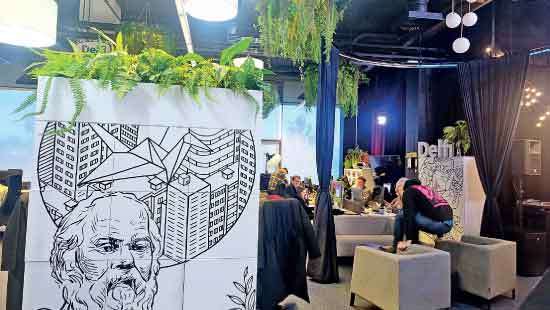Listen to the article
Lithuania Leads Baltic States in Combating Russian Disinformation Campaigns
Lithuania has emerged as a frontline defender against Russian disinformation, leveraging its public broadcaster, armed forces, and independent newsrooms to counter what officials consider a significant security threat. As a Baltic state with a long history of Russian aggression, Lithuania has developed sophisticated systems to identify and debunk Kremlin-backed propaganda.
According to geopolitical experts, the majority of disinformation targeting Lithuania originates from Russia and aims to undermine NATO, the European Union, and Western alliances while bolstering Russian legitimacy on the global stage. In response, Lithuania has intensified efforts to provide accurate information to its citizens.
“We are very unfortunate because we have two neighbours, Russia and Belarus, trying to undermine our country and attack with disinformation campaigns since the Russian annexation of Crimea in 2014 and even earlier,” explains Aleksandra Ketleriene, Deputy Editor of lrt.lt, the online news portal of Lithuanian Radio and Television (LRT), the country’s public broadcaster.
One persistent propaganda narrative portrays Lithuania as a “failed state,” a claim Lithuanian officials counter with economic and social statistics demonstrating the country’s stability and growth. The disinformation campaign intensified following Russia’s annexation of Crimea in 2014, becoming increasingly aggressive and sophisticated.
LRT stands at the forefront of the country’s defense against misinformation. The broadcaster operates a multilingual website available in five languages, allowing citizens to access verified information and analyze disinformation narratives. LRT journalists have evolved into watchdogs, monitoring Russian and Belarusian information spaces to identify emerging narratives that could potentially infiltrate Lithuanian media.
Facing a shortage of journalists trained in disinformation analysis, LRT has developed various educational and media literacy programs to help the public identify false information. The broadcaster’s investigation team collaborates with regional journalists to analyze disinformation techniques through leaked Kremlin documents, revealing how social media channels previously focused on anti-NATO and anti-EU messaging pivoted to anti-vaccine narratives during the pandemic before shifting to pro-Russian, anti-Ukraine content after the 2022 invasion.
The Lithuanian Armed Forces have also joined the fight against disinformation. Their strategic communications department, established in 2011, counters adversary propaganda that has been broadcasting since 2008. The Information and Environment Assessment branch analyzes hostile information from Russia and Belarus by monitoring mainstream media and official statements.
A military spokesperson explained that disinformation itself represents a security risk, and the military carries higher public trust than traditional media outlets, making it an effective messenger for counter-disinformation efforts.
Private media companies have also established fact-checking initiatives. DELFI, the Baltic region’s largest online news outlet, launched Melo Detektorius (“Lie Detector”) in 2018, now the second-oldest fact-checking operation in Lithuania. The initiative evolved from an earlier project focused specifically on debunking Kremlin propaganda.
“We mostly fact-check misinformation and disinformation found on social networks and collaborate closely with social media platforms,” says Aistė Meidutė, Editor at Melo Detektorius. “We find claims to be fact-checked, sometimes these claims are sent by readers.”
After examining over 3,000 claims, Melo Detektorius employs a five-tier rating system: True, False, Partly False, Manipulation, and Fabrication. This structured approach helps explain complex issues to the public. However, fact-checking comes with risks – Meidutė noted that journalists frequently endure harassment and hate speech from those they expose.
Similarly, Patikrinta 15 min (“Checked by 15 min”), Lithuania’s first fact-checking project established in 2016, focuses on verifying claims related to health, science, and politics.
As Russian disinformation techniques evolve, Lithuania’s multi-pronged approach involving government, military, public broadcasting, and private media demonstrates the country’s determination to protect its information space and strengthen resilience against foreign influence operations.
Verify This Yourself
Use these professional tools to fact-check and investigate claims independently
Reverse Image Search
Check if this image has been used elsewhere or in different contexts
Ask Our AI About This Claim
Get instant answers with web-powered AI analysis
Related Fact-Checks
See what other fact-checkers have said about similar claims
Want More Verification Tools?
Access our full suite of professional disinformation monitoring and investigation tools




8 Comments
It’s concerning to see the scale and persistence of Russian disinformation campaigns targeting Lithuania and other Baltic states. However, their proactive response demonstrates a strong commitment to defending their democratic institutions and sovereignty.
This article underscores the importance of media literacy and critical thinking skills to help citizens navigate the complex information landscape. Lithuania’s efforts to empower its public are an important step in safeguarding democratic values.
Absolutely. Building public resilience against disinformation is crucial. Lithuania’s approach of leveraging public media, independent journalism, and even the military highlights the need for a multifaceted strategy.
I’m curious to learn more about the specific tactics and tools Lithuania uses to identify and debunk Kremlin propaganda. Sharing their expertise could benefit other countries facing similar challenges from Russian disinformation campaigns.
Interesting to see how Lithuania has developed defenses against Russian disinformation campaigns. As a frontline state, they have valuable experience in combating Kremlin propaganda that could provide lessons for other countries facing similar threats.
You’re right, Lithuania’s approach seems very proactive. Leveraging public media, the military, and independent journalism to counter false narratives is a comprehensive strategy worth studying.
The article highlights the challenge of combating state-sponsored disinformation, especially from a powerful neighbor like Russia. Lithuania’s efforts to provide accurate information to its citizens are commendable and could serve as a model for other nations.
Absolutely. Equipping the public with truthful information is crucial to countering disinformation. Lithuania’s multi-pronged approach is an encouraging example of how to proactively defend democratic institutions.